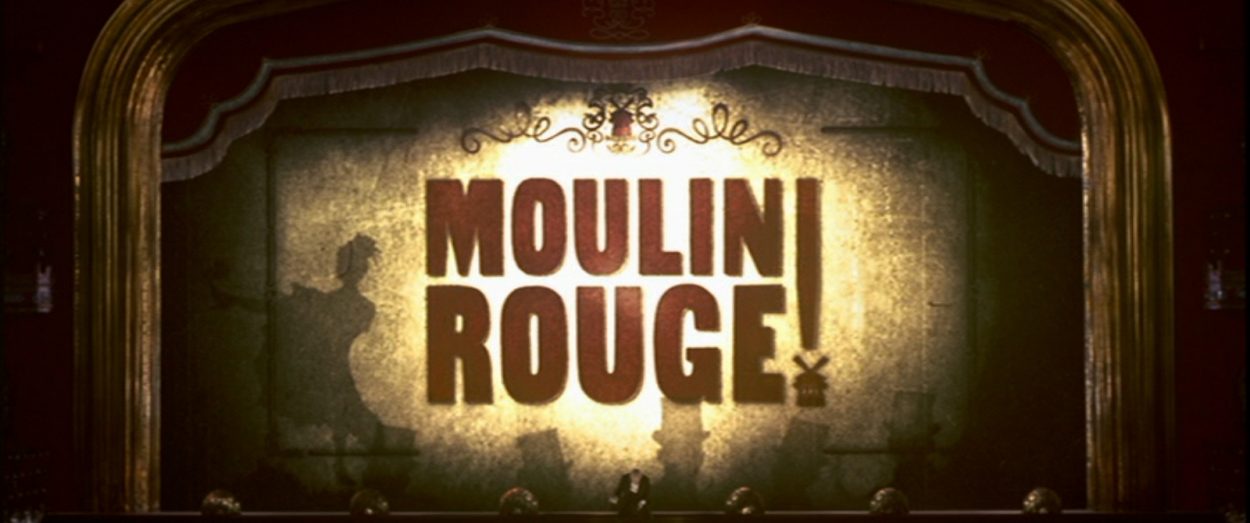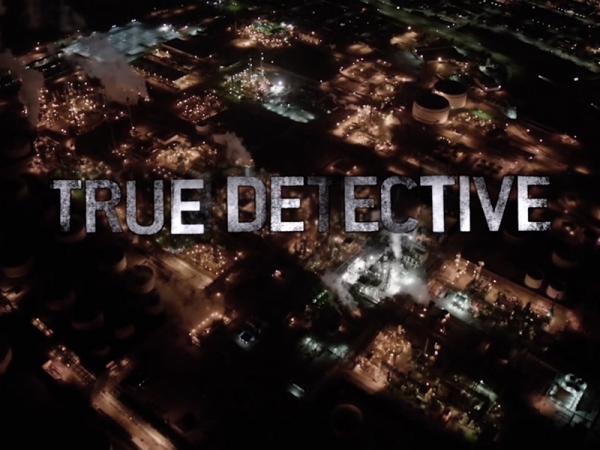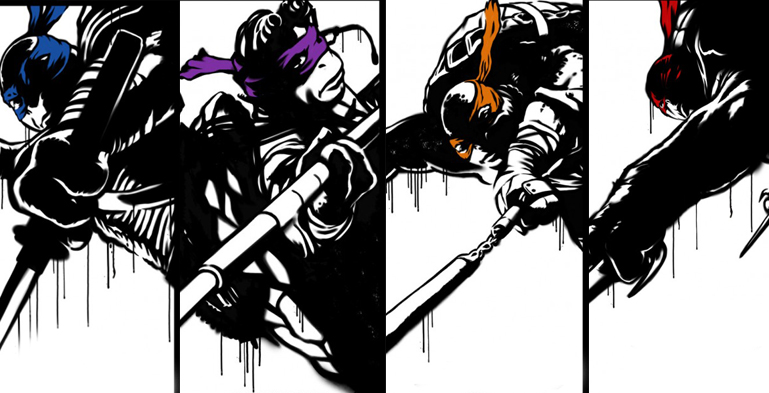I’ll be the first to admit that I can be a bit of a crank. These are true facts. It’s also possible that, maybe, in my time writing this column the last pinkish red part of my heart has made the transformation into black coal. But then I see something that reaffirms my faith in humanity, and it fills me with a sense of wonder that transcends the mundane awfulness of the everyday. Sometimes you see a love story so true and perfect that it makes your soul sing, and turns some of that coal back into beating heart. Of course, I’m not talking about Moulin Rouge! This movie instead manages to discover new and heretofore untapped reservoirs of badness.
Don’t get me wrong, if all you’re looking for is a 2 hour music video, then crack on. But this is like somebody tapped an oil well filled with a slurry of karaoke remixes and push up bras and sprayed it all over a bewildered audience. Well, like that but not nearly as erotic. Instead the plotting exists purely to get to the next song, the characters hope to one day have as many dimensions as cardboard cutouts, and the use of melodrama makes my brain ache. This time we find out that the show doesn’t need to go on. Especially if the show is going to give everyone tuberculosis. This is the Takedown.
The Plot
The plot for Moulin Rouge! (yes, there’s an exclamation mark in the title, one of the many reasons my loathing knows no earthly bounds) begins with a writer named Christian (we’re on theme this time!), who has come from England to France to join the bohemian movement and be where the people are. You know, singing and dancing and drinking absinthe. He soon finds himself drawn into the group of stage performers led by a french accented John Leguizamo since they think he can help them finish the writing for their stage show.
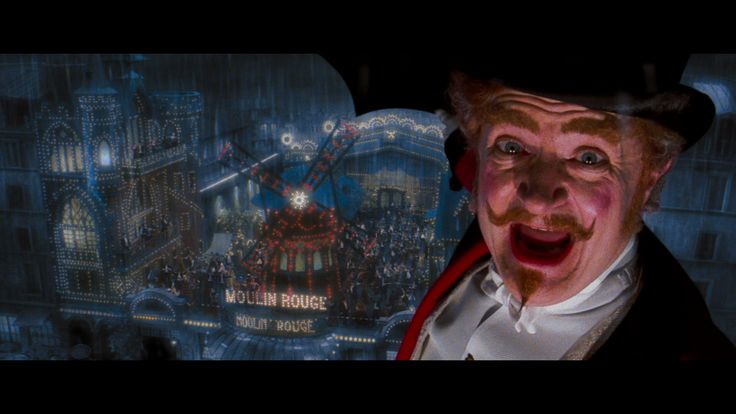
The lot of them end up at the eponymous Moulin Rouge Theatre to basically option their show to the owner. Since he’s the new guy, they dispatch poor Christian to sell the show to Satine – the lead dancer and daughter of the owner. Unbeknownst to the performers, on that very day Satine was supposed to meet a duke whose name I remember as Lord Douche-Berry for some reason. Satine was going to seduce the Duke in order to help keep the Moulin Rouge open, but mistakenly turns her feminine wiles on Christian, whom is instantly smitten. When the Duke of Evil Town catches them, he is furious. After all, he was promised a happy, fun fun nekkid time with Nicole Kidman. Also, a pony. But Christian and Satine convince the Duke that they were just practicing their new show, something called Spectacular Spectacular. It’s named as such because, like many writers, Christian sucks ass at titles.

The show within a show ends up being about a poor sitar player who loves a courtesan, and an evil maharajah who wants to steal her for himself. If you’re thinking that’s a thinly veiled example of the plot so far, you’re right. The only person who doesn’t realize this is the Lord Douche-Berry. So while the acting troupe rehearses their show, Christian and Satine fall ever more in love behind the back of the Duke and earnestly sing at each other, because 2 part harmonies are the root of any good relationship.
Thinking that he hasn’t gotten any of that T&A promised by the creepy proprietor of the Moulin Rouge, the Duke demands some alone time with Satine. Unfortunately for him, she falls ill from tuberculosis and can’t make it. Doctor Duke believes he is being bamboozled, possibly even hoodwinked. At this point an unscrupulous backup dancer explains to Lord Home Schooled what a metaphor is, which of course makes him super angry. “Replacing the concepts with other concepts,” he cried, ”is betrayal of the most foul kind! Sorcery even.”
Now feeling the kind of indignant rage usually reserved for people who shop at Whole Foods, the Lord of Douche Castle demands that the show be changed, and his maharajah metaphor gets the girl at the end.
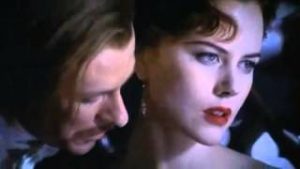
Also, no more waiting, it’s time for him and Satine to have a pants free Happy Hour. Or at the very least an open zipper Happy 6 Minutes. Christian freaks out because his girlfriend is dying while also being passed around like joint, so he does what writers do – he writes and cries a lot. What he doesn’t know since he’s too busy being a stone cold baby about it, is that Satine can’t go through with the plan to seduce the Duke because it turns out that she has standards.
During the big night of the opening show, Christian returns and demands that Satine tell him she doesn’t love him. While they argue, the curtain goes up and the 2 of them look like rubes. In a bit of quick thinking, the owner of the Moulin Rouge/Satine’s Dad/Satine’s Pimp declares Christian to be the sitar player of the show, only in disguise. Christian and Satine argue some more, and Christian leaves angry. While he walks away Satine sings the song he wrote for her. They sing it together, while the Duke of Munchkin Land and his goons are dispatched by actors. With true love having conquered all, the show ends and Satine promptly dies.
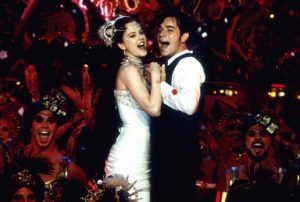
Christian spends his time writing the story of the Moulin Rouge, and the movies ends with Christian claiming that his “Love will live forever.” Not shown is that his manuscript is rejected by countless publishers for being “treacle.”
Thank the god above that’s over. I spent time trying to figure out what the structure of the plot of Moulin Rouge! is. I think that what it wants to be is boy meets girl, evil boy likes girl, girl eventually likes (not evil) boy. But it’s not that. It’s also not the story of art overcoming all obstacles. Maybe at the middle that’s what this film would like to be, but let’s be honest with ourselves. At the end the Duke is still a fuggin Duke, and Christian is single, poor and probably infected with TB.
Turns out the plot is really about men and the lies they tell themselves to justify their behavior. At the core of the film is Satine, who is basically a MacGuffin in evening wear. I don’t think I’ve ever seen a character with so little agency. She basically just gets bounced around the principle cast like a pachinko ball but with even less control over what direction she’s going. As a character outside of the show her actions are controlled by her father. She is sent to seduce the Duke, then she plays a role and is told that her entire life is about ensuring that the “show must go on.” The Duke meanwhile wants to have her as an object d’art/fuck puppet and doesn’t care what she thinks about it either way. Then, there’s Christian, who is probably the worst of the bunch.
“But wait!” I can hear the internet cry out,”Christian is the good guy! He loves her!” But remember he is the writer of the show Spectacular Spectacular. His job is to tell her what to say and when to say it. When Christian is locked out and the Duke is going to have sideways tango time with Satine he loses it, because he has lost control of the situation and does not know what she will do. At the end he demands Satine tell him that she doesn’t love him anymore, and it’s just another way that Christian is trying to control her words and her actions. The most important thing is not to love and be loved in return, it’s to recognize that being in love is not the same as being in control.
So no, Moulin Rouge! isn’t a love story. It’s really a story about a trio of abusive relationships and a dying girl. But you know, they couldn’t put that on the poster.
The Melodrama
Let’s take this time and talk about the concept of melodrama and musicals. Melodrama is a type of drama that is designed to appeal primarily to the emotions of the audience. For the most part, that means that the smaller and more nuanced character work gets set aside. This is why people use the term “melodramatic” as a bit of an insult. But it doesn’t have to be that way. A good melodrama will use emotion in a way that makes it larger than life. So all of the character’s emotions are turned way up. They don’t just love, they love forever and always. Anger transforms into rage and sadness into the deepest sorrow.
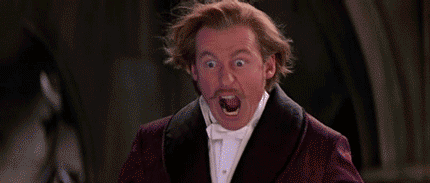
Of course in real life if people acted like this they would be prescribed medication. But when you’re dealing with the theatre (and musicals and opera in particular) melodrama can be used very effectively. Those mediums are already going for the big feels and don’t leave a lot of room of nuance anyway. So when I say that Moulin Rouge! is melodramatic I don’t mean that as a critique per se. Of course I can say that Moulin Rouge! does to melodrama what a Great White Shark does to a surfing seal, by which I mean crunch it into something bloody and unrecognizable. The issue has to do with the music.
Hold on, hold the hell on and put away the pliers and blowtorch. I am not about to go on about how the music in Moulin Rouge! is bad. The way it looks and the way it sounds are why people think it’s any good in the first place. That Roxanne number is actually pretty great. The thing is for a musical there are certain structures in place in order for the music to work within the context of the plot. The last time I eloquently, patiently, and tenderly violated a musical, I explained that a musical number in a movie needs to do 1 of 2 things. First, it needs to advance the plot. So if the plot is in the same place as it was at the beginning of the number as it is at the end, then you can build a pyre and sacrifice it to whatever dark gods you prefer. Secondly, if it doesn’t advance the plot it should create characterization. To put it another way, a musical number is not an excuse to take the scene off. It still needs to do what a scene would normally do, while it also has all of the singing, dancing and the other merriment that drives some of us to drink while sitting in traffic.
Moulin Rouge! manages to avoid those pitfalls and somehow get it wrong in the other direction. There’s almost enough music to make the entire film work without prose, but instead of taking that route it leaves the prose sections to create a reason for the next musical number. I will admit, that it creates a sense of flow, but it drastically shortchanges the dramatic sequences in between. In musicals, the inner thoughts and feelings of characters are writ large across the stage. Full throated singing fills the hall to the rafters and the audience is supposed to, you know, feel stuff. Following that up with a quiet scene suddenly doesn’t work. Instead you end up veering into the realm of the melodramatic.
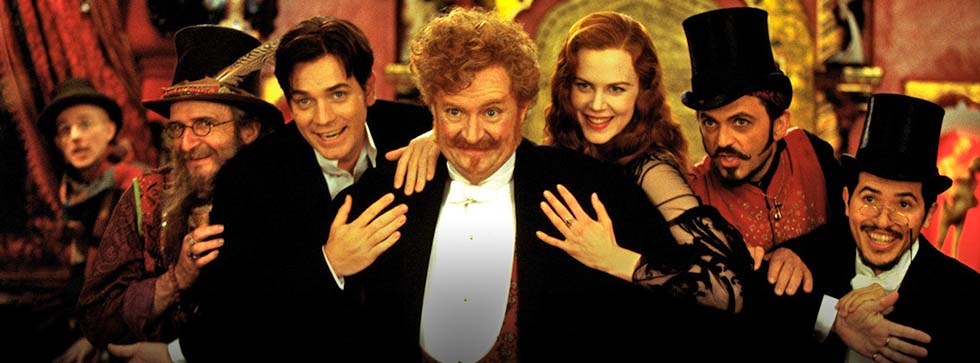
In turn, everything becomes larger than it has to be. The characters are rendered down like whale tallow into the broadest of archetypes and any sense of nuance that the characters may have had evaporates away. Trying to keep from exposing the paper thin characters, Moulin Rouge! instead tries to spend as little time with them as possible outside of the songs. This has the unfortunate effect of reducing how much we are supposed to care. “Don’t worry!” the writers seem to say, “We don’t need nuance! We have another mashup coming up in 2 pages!”
But it doesn’t need to be that way. Wicked is a musical, and does an excellent job of making the audience care about the characters. If anything it has the unenviable job of working against the preconceptions of the audience, because the protagonist is one of the most well known villains in cinema. But the acted portions of Wicked and the musical numbers work together to create a true sense of a character. The inner thoughts and emotions of what the characters say comes through in the music, which give us insight into their actions in the following scenes. In other words – they’re balanced. Instead Moulin Rouge! seems content to bludgeon the audience with one musical number after another in a vain attempt to create that same emotion. Eventually the whole thing just rings hollow, and in spite of the dancing and the colors the audience finds it impossible to have a shit to give.
Then someone shouts, “The Greatest Thing You’ll Ever Learn Is To Love And Be Loved In Return!” and you’ll start looking for nearby turbo-prop propellers to run into with open arms.
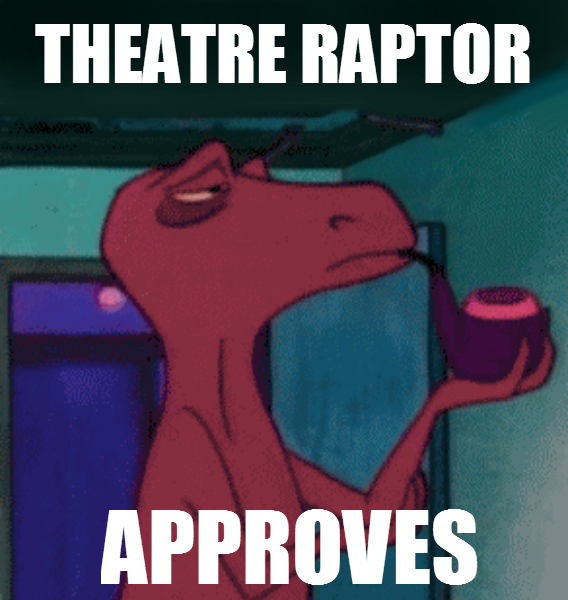
And that, is the Takedown.
As always if you feel I missed the point and Moulin Rouge! is supposed to be the best thing to happen to love since the invention of the backseat, head to the comments and you may fire when ready. On the other hand you can always fight the good fight for honor and decency and defend me from the ravening hordes in the comments.
Until next time.

